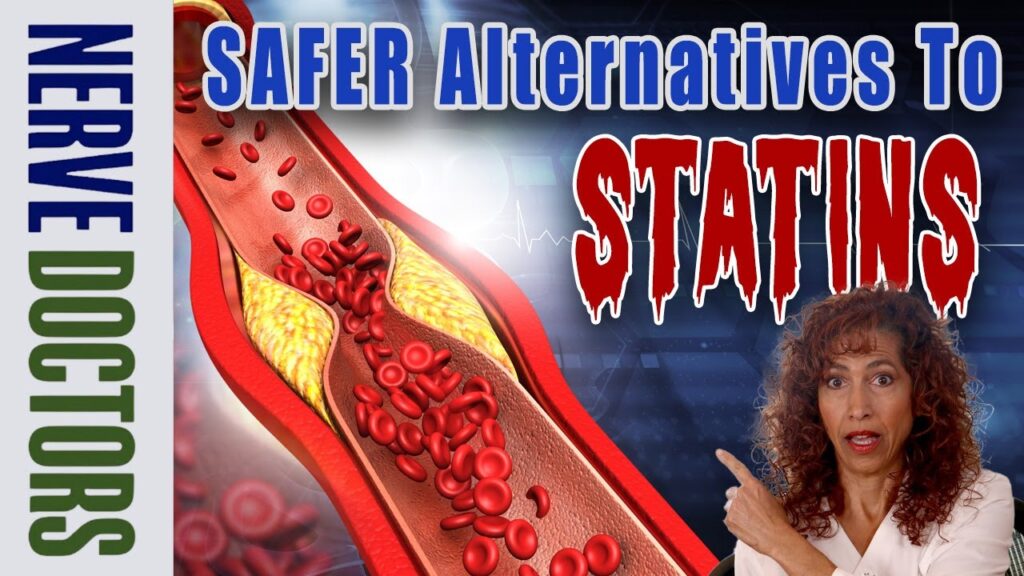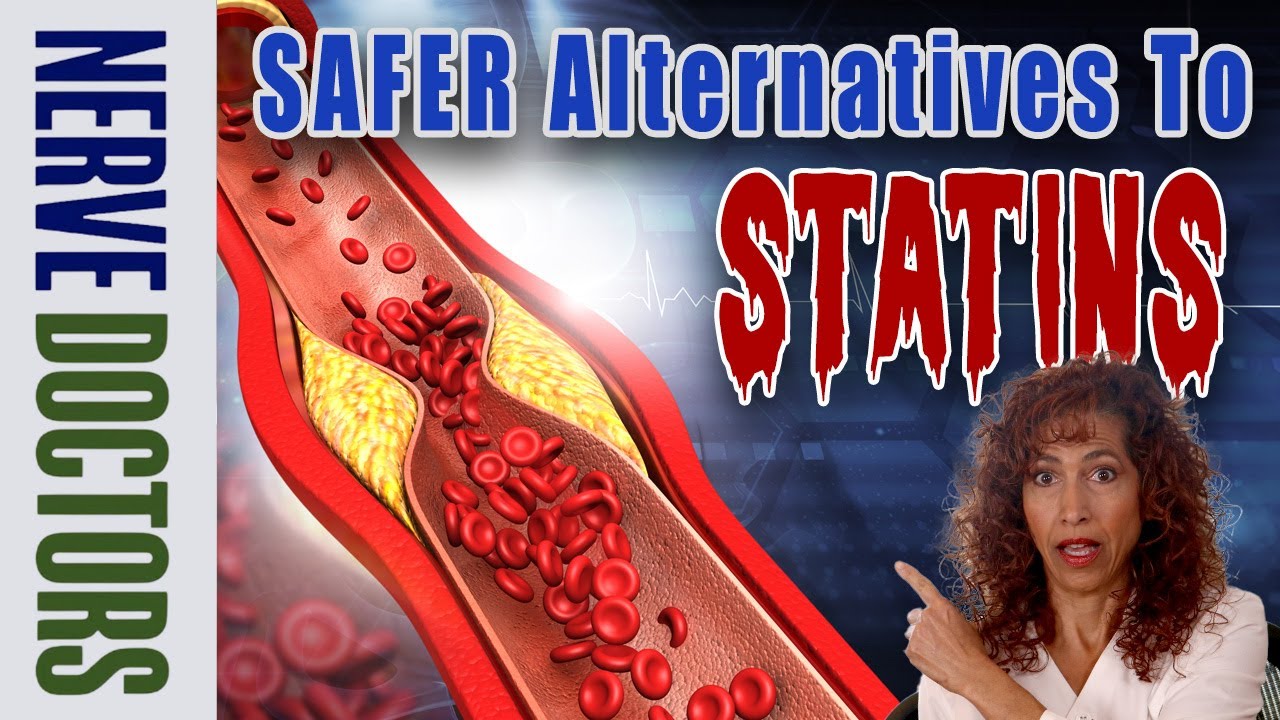You are about to uncover safer alternatives to statins for lowering dangerous cholesterol with The Nerve Doctors in a video. With high cholesterol affecting millions of Americans, the focus is on exercise, dietary changes, and supplements like red yeast rice, berberine, and amla. Dr. Coppola and Dr. Monteiro have developed NUPHORIA cm to help patients recover from neuropathy, providing drug-free, non-surgical treatment at the San Antonio Neuropathy Center.
It’s alarming to realize that statin prescriptions have doubled since 2002, with severe side effects like dementia, Alzheimer’s, and liver cancer. The video emphasizes natural means and informed choices for better health, highlighting the importance of exercise, diet changes, and supplements in managing cholesterol levels. Options are available for individuals to take control of their health and choose safer alternatives for their well-being.

Safer Alternatives to Lower Cholesterol
When it comes to managing your cholesterol levels, it’s essential to explore safer alternatives than relying solely on statin medications. Incorporating a combination of exercise, dietary changes, and supplements can help you achieve optimal cholesterol levels without exposing yourself to potential side effects. By making informed choices and prioritizing your health, you can effectively manage your cholesterol levels and promote overall well-being.
Exercise
Regular physical activity plays a crucial role in regulating cholesterol levels. Engaging in aerobic exercises like walking, jogging, cycling, or swimming can help boost HDL (good) cholesterol and lower LDL (bad) cholesterol. Additionally, resistance training, whether using weights, body weight, or resistance bands, can further enhance cholesterol profiles. By incorporating exercise into your routine, you can improve cholesterol levels and support cardiovascular health.
Dietary Changes
The influence of diet on cholesterol levels cannot be understated. Avoiding processed foods high in unhealthy fats and sugars is crucial for managing cholesterol. Instead, focus on consuming whole foods rich in soluble fiber, such as oats, barley, beans, fruits, and vegetables. Increasing your intake of omega-3 fatty acids from sources like fatty fish, flax seeds, and chia seeds can also help improve cholesterol profiles. Making simple changes to your diet can have a significant impact on lowering cholesterol levels and promoting heart health.
Supplements
Incorporating supplements like red yeast rice, berberine, amla, omega-3 fatty acids, and Nasin (Vitamin B3) can provide additional support in lowering cholesterol. These natural alternatives offer benefits without the potential side effects commonly associated with statin medications. By including these supplements as part of your daily regimen, you can support your efforts to manage cholesterol levels effectively and safely.
The Nerve Doctors’ Approach to Lowering Cholesterol
The Nerve Doctors, Dr. Coppola, and Dr. Monteiro, have developed a comprehensive approach to help patients lower their cholesterol levels and manage neuropathy effectively. Through the development of NUPHORIA cm, a specialized neuropathy formula, and the services offered at the San Antonio Neuropathy Center, individuals can access drug-free and non-surgical treatments for neuropathy. Additionally, their book “Defeat Neuropathy Now” provides valuable insights into neuropathy treatment and empowers individuals to take control of their health.
Rising Cases of Elevated Cholesterol Levels
Recent trends show a shift in the demographic affected by elevated cholesterol levels, with younger adults now experiencing this health concern. The rise in cholesterol levels among younger populations can be attributed to lifestyle factors, such as poor dietary choices and sedentary behaviors. By addressing these underlying causes and adopting healthier lifestyle habits, individuals can prevent and manage elevated cholesterol levels effectively.
Concerns with Statin Use
While statin medications are commonly prescribed to lower cholesterol, they come with potential risks and side effects. Cognitive effects, nerve damage, liver damage, and cardiac injury are some of the concerns associated with statin use. Considering the substantial impact of these side effects on overall health, it’s important to explore safer alternatives to manage cholesterol levels.
Prevalence of High Cholesterol in the US
The prevalence of high cholesterol in the United States is a significant public health concern, with millions of adults facing this condition. The increase in statin prescriptions over the years reflects the growing awareness of the importance of managing cholesterol levels. However, the potential side effects and risks associated with statin use underscore the need for safer alternatives to lower cholesterol effectively.
Side Effects of Statins
Statin medications have been linked to severe side effects, including dementia, Alzheimer’s disease, liver cancer, and diabetes. These potential risks highlight the importance of exploring alternative approaches to managing cholesterol levels. By considering natural means, such as dietary changes, exercise, and supplements, individuals can mitigate the risks associated with statin use and prioritize their health.
Conclusion
In conclusion, prioritizing your health and well-being is key to effectively managing cholesterol levels. By incorporating exercise, making dietary changes, and including supplements in your daily routine, you can lower cholesterol safely and efficiently. Consulting healthcare providers for guidance and support in exploring safer alternatives to statin medications is essential for promoting long-term health and wellness. Take control of your cholesterol levels and make informed choices to improve your overall health and quality of life.
